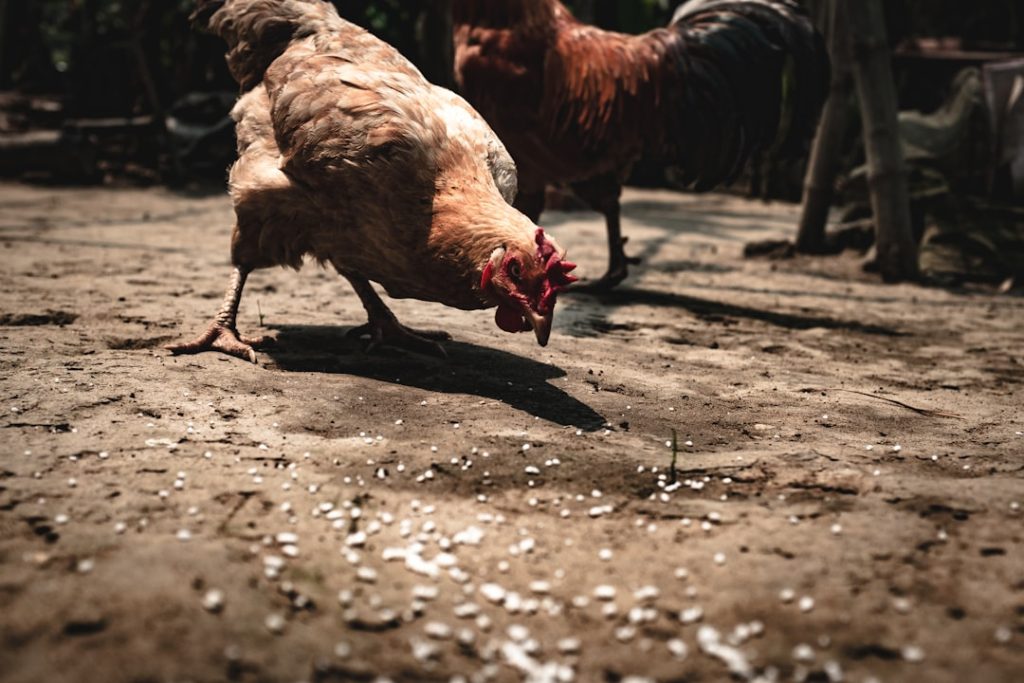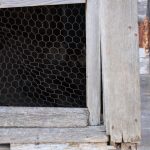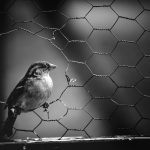Feather plucking in chickens is a common behavioral issue with multiple potential causes. Boredom and lack of stimulation are primary factors, as chickens are naturally curious and active animals. When confined in spaces with insufficient enrichment, they may pluck feathers to alleviate boredom.
Stress and aggression within the flock can also lead to feather plucking, particularly in overcrowded conditions or during pecking order disputes. Health issues and parasites, such as mites or lice, may cause discomfort or irritation, prompting chickens to pluck their feathers in response. Nutritional deficiencies are another significant cause of feather plucking.
Chickens require a balanced diet to maintain healthy feathers, and inadequate nutrition may lead to compensatory feather plucking. Identifying the underlying cause is crucial for effectively addressing this behavior. Chicken owners can prevent and manage feather plucking by providing a suitable environment, balanced diet, and proper care for their flock.
Understanding these factors enables proactive measures to be taken, ensuring the health and well-being of the chickens.
Table of Contents
- 1 Providing Adequate Space and Enrichment for Chickens
- 2 Ensuring a Balanced Diet for Chickens
- 3 Managing Stress and Aggression in the Flock
- 4 Identifying and Treating Parasites and Health Issues
- 5 Implementing Behavioral Modification Techniques
- 6 Seeking Professional Help and Consultation
- 7 FAQs
- 7.1 What causes chickens to pluck feathers?
- 7.2 How can I prevent chickens from plucking feathers?
- 7.3 What are some enrichment activities for chickens to prevent feather plucking?
- 7.4 Are there any nutritional supplements that can help prevent feather plucking?
- 7.5 What should I do if I notice chickens plucking each other’s feathers?
Key Takeaways
- Feather plucking in chickens can be caused by stress, boredom, overcrowding, or health issues.
- Providing adequate space, perches, and enrichment activities can help prevent feather plucking in chickens.
- A balanced diet with proper nutrition is essential for maintaining healthy feathers and preventing feather plucking.
- Managing stress and aggression within the flock through proper socialization and environmental management is crucial for preventing feather plucking.
- Regularly checking for parasites and health issues, and seeking professional help when needed, is important for preventing and treating feather plucking in chickens.
Providing Adequate Space and Enrichment for Chickens
Space and Enrichment: The Key to Happy Chickens
One of the most critical factors in preventing feather plucking in chickens is providing them with adequate space and enrichment. Chickens need room to move around, stretch their wings, and engage in natural behaviors like dust bathing and foraging. Overcrowding can lead to stress and boredom, which can cause feather plucking.
Reducing the Likelihood of Feather Plucking
Providing ample space for chickens to roam and explore can significantly reduce the likelihood of feather plucking. Enriching their environment with items like perches, dust bathing areas, and toys can keep them mentally stimulated and engaged, reducing the likelihood of feather plucking due to boredom. A suitable coop and outdoor area that meet their needs are also essential.
A Comfortable and Stimulating Environment
The coop should be well-ventilated, clean, and free from drafts, as poor living conditions can contribute to stress and health issues that may lead to feather plucking. The outdoor area should be secure and predator-proof, allowing chickens to safely roam and forage. By providing adequate space and enrichment, owners can create a stimulating and comfortable environment that promotes healthy behaviors and reduces the likelihood of feather plucking.
Ensuring a Balanced Diet for Chickens
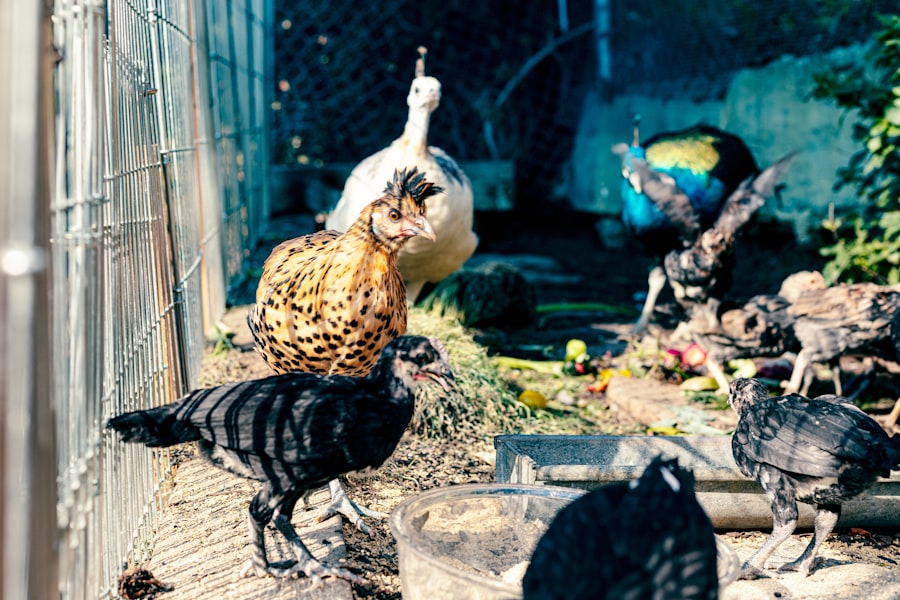
A balanced diet is essential for maintaining the overall health and well-being of chickens, including the health of their feathers. Feathers are made up of protein, so it is crucial to provide chickens with a diet that is rich in high-quality protein sources such as insects, seeds, and legumes. In addition to protein, chickens also require a variety of vitamins and minerals to maintain healthy feathers.
Deficiencies in essential nutrients such as vitamin A, biotin, and zinc can lead to poor feather quality and increase the likelihood of feather plucking. Therefore, it is important to provide chickens with a well-rounded diet that meets all of their nutritional needs. In addition to providing a balanced diet, it is important to ensure that chickens have access to clean water at all times.
Dehydration can lead to dry and itchy skin, which may prompt chickens to engage in feather plucking as a way to alleviate discomfort. By ensuring that chickens have access to fresh water and a balanced diet, owners can help maintain the health of their feathers and reduce the likelihood of feather plucking.
Managing Stress and Aggression in the Flock
Stress and aggression within the flock can contribute to feather plucking behavior in chickens. It is important for chicken owners to manage these factors in order to prevent feather plucking and promote a harmonious flock environment. One way to manage stress and aggression is by providing adequate space and resources for all chickens.
Overcrowding can lead to competition for resources and increased aggression, so ensuring that each chicken has enough space, food, water, and nesting areas can help reduce stress and aggression within the flock. Additionally, it is important to monitor the flock for signs of aggression or bullying behavior. Chickens establish a pecking order within the flock, but excessive aggression or bullying can lead to stress and feather plucking.
If aggressive behavior is observed, it may be necessary to separate the aggressor from the rest of the flock or introduce new chickens gradually to prevent disruptions in the pecking order.
Identifying and Treating Parasites and Health Issues
Parasites and health issues can cause discomfort and irritation in chickens, leading to feather plucking as a response. It is important for chicken owners to regularly inspect their flock for signs of parasites such as mites, lice, or fleas. These parasites can cause itching and irritation, prompting chickens to engage in feather plucking as a way to alleviate discomfort.
If parasites are identified, it is important to treat the infestation promptly using appropriate medications or natural remedies. In addition to parasites, health issues such as skin infections or allergies can also lead to feather plucking. It is important for chicken owners to monitor their flock for signs of skin irritation or inflammation, as well as changes in behavior or appearance that may indicate an underlying health issue.
If health issues are suspected, it is important to consult with a veterinarian to determine the appropriate course of treatment.
Implementing Behavioral Modification Techniques
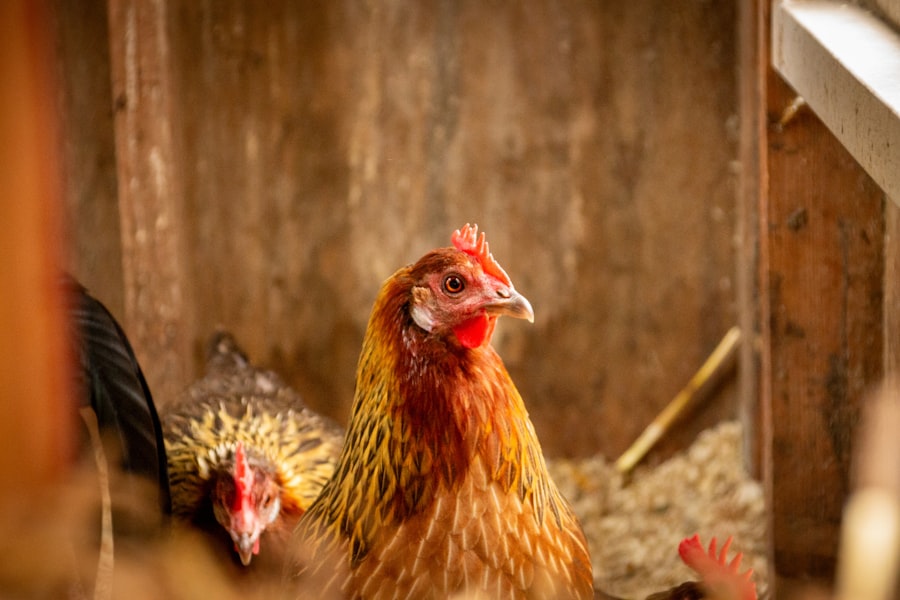
Positive Reinforcement Training
One approach is to use positive reinforcement training to encourage desirable behaviors and discourage feather plucking. For example, providing treats or rewards when chickens engage in natural behaviors such as foraging or dust bathing can help redirect their focus away from feather plucking.
Environmental Enrichment
Another technique is environmental enrichment, which involves providing chickens with stimulating activities and objects that encourage natural behaviors. This can include hanging treats or toys for chickens to peck at, creating dust bathing areas with sand or diatomaceous earth, or introducing new items into the environment for chickens to explore.
Redirecting Focus
By using these techniques, chicken owners can redirect their birds’ focus away from feather plucking and towards more natural and healthy behaviors.
Seeking Professional Help and Consultation
If feather plucking persists despite efforts to address the underlying causes, it may be necessary to seek professional help and consultation. A veterinarian with experience in poultry health can help identify any underlying health issues or parasites that may be contributing to feather plucking. Additionally, a poultry behavior specialist or animal behaviorist can provide guidance on implementing effective behavioral modification techniques tailored to the specific needs of the flock.
In some cases, medication or supplements may be necessary to address underlying health issues or nutritional deficiencies that are contributing to feather plucking. A professional can provide guidance on appropriate treatment options and help develop a comprehensive plan for addressing feather plucking in chickens. In conclusion, addressing feather plucking in chickens requires a multifaceted approach that addresses the underlying causes of the behavior.
By providing adequate space and enrichment, ensuring a balanced diet, managing stress and aggression within the flock, identifying and treating parasites and health issues, implementing behavioral modification techniques, and seeking professional help when necessary, chicken owners can effectively address feather plucking and promote the overall health and well-being of their flock.
If you’re looking for more tips on keeping chickens, you might be interested in an article on converting a shed into a chicken coop. This article from Poultry Wizard provides valuable information on how to repurpose a shed to create a comfortable and functional living space for your chickens. Check it out here.
FAQs
What causes chickens to pluck feathers?
Chickens may pluck feathers due to stress, boredom, overcrowding, nutritional deficiencies, or health issues. It can also be a result of pecking order dynamics within the flock.
How can I prevent chickens from plucking feathers?
To prevent feather plucking, provide a spacious and enriching environment for the chickens, ensure they have access to a balanced diet, and monitor their health regularly. Additionally, addressing any issues related to flock dynamics and reducing stress can help prevent feather plucking.
What are some enrichment activities for chickens to prevent feather plucking?
Enrichment activities for chickens can include providing them with access to a variety of perches, dust bathing areas, toys such as hanging vegetables or treat dispensers, and opportunities for foraging.
Are there any nutritional supplements that can help prevent feather plucking?
Supplements such as poultry vitamins and minerals, probiotics, and omega-3 fatty acids can help support overall chicken health and reduce the likelihood of feather plucking. However, it’s important to consult with a veterinarian or poultry nutritionist before adding any supplements to the chickens’ diet.
What should I do if I notice chickens plucking each other’s feathers?
If you notice chickens plucking each other’s feathers, it’s important to address the underlying cause, such as stress or overcrowding. Separating the affected chickens, providing additional enrichment, and monitoring their behavior closely can help prevent further feather plucking. If the issue persists, consulting with a poultry veterinarian may be necessary.
Meet Walter, the feathered-friend fanatic of Florida! Nestled in the sunshine state, Walter struts through life with his feathered companions, clucking his way to happiness. With a coop that’s fancier than a five-star hotel, he’s the Don Juan of the chicken world. When he’s not teaching his hens to do the cha-cha, you’ll find him in a heated debate with his prized rooster, Sir Clucks-a-Lot. Walter’s poultry passion is no yolk; he’s the sunny-side-up guy you never knew you needed in your flock of friends!

